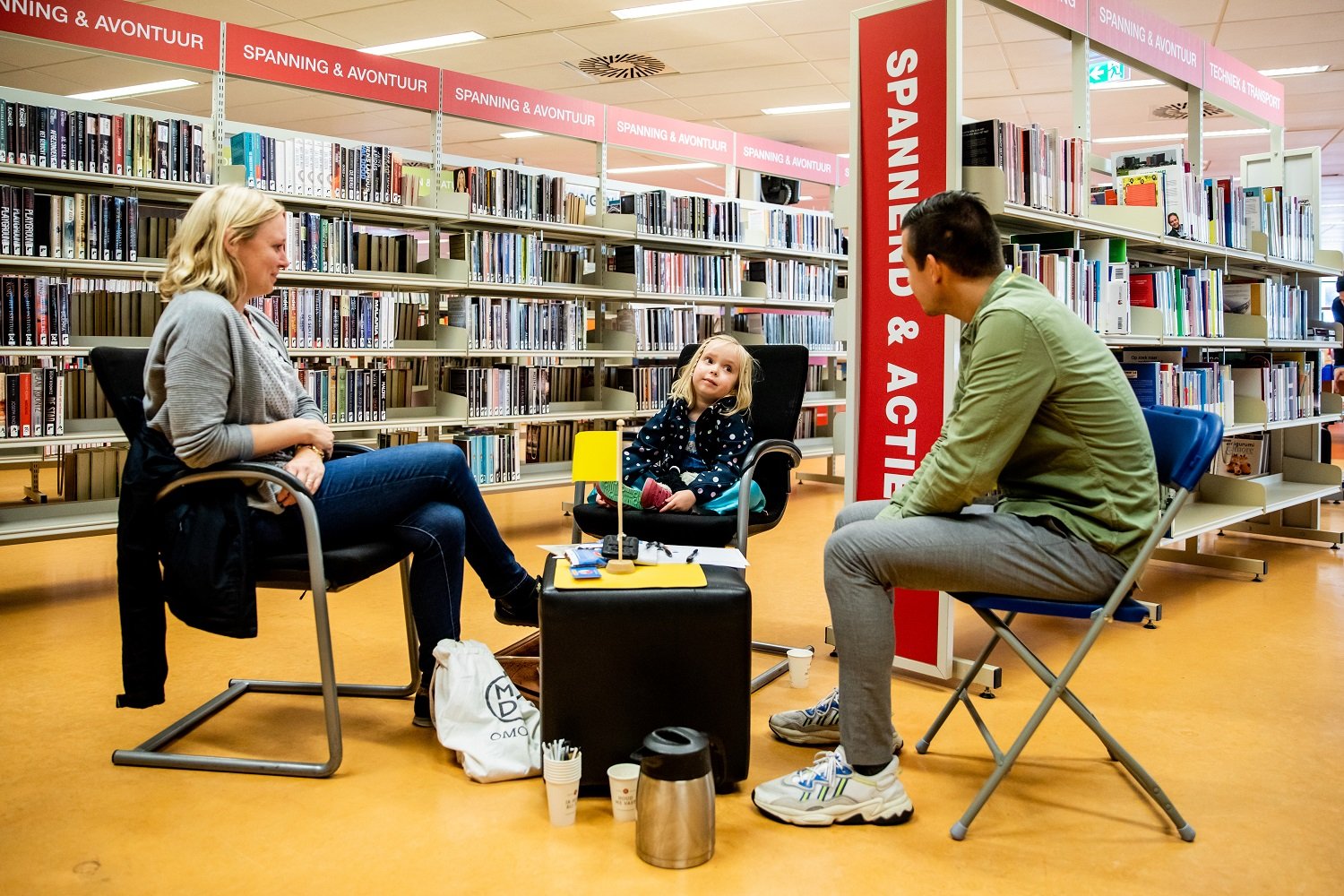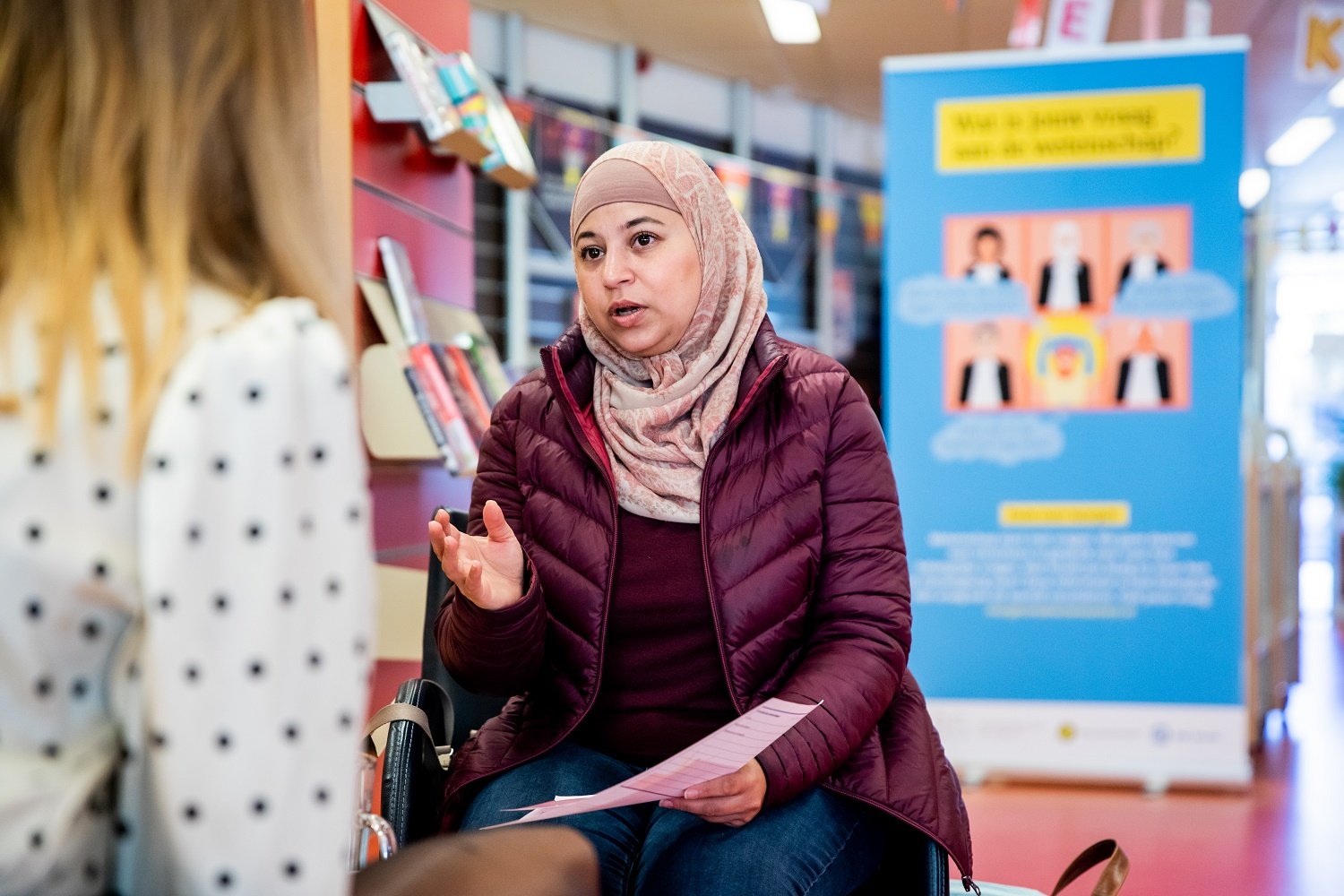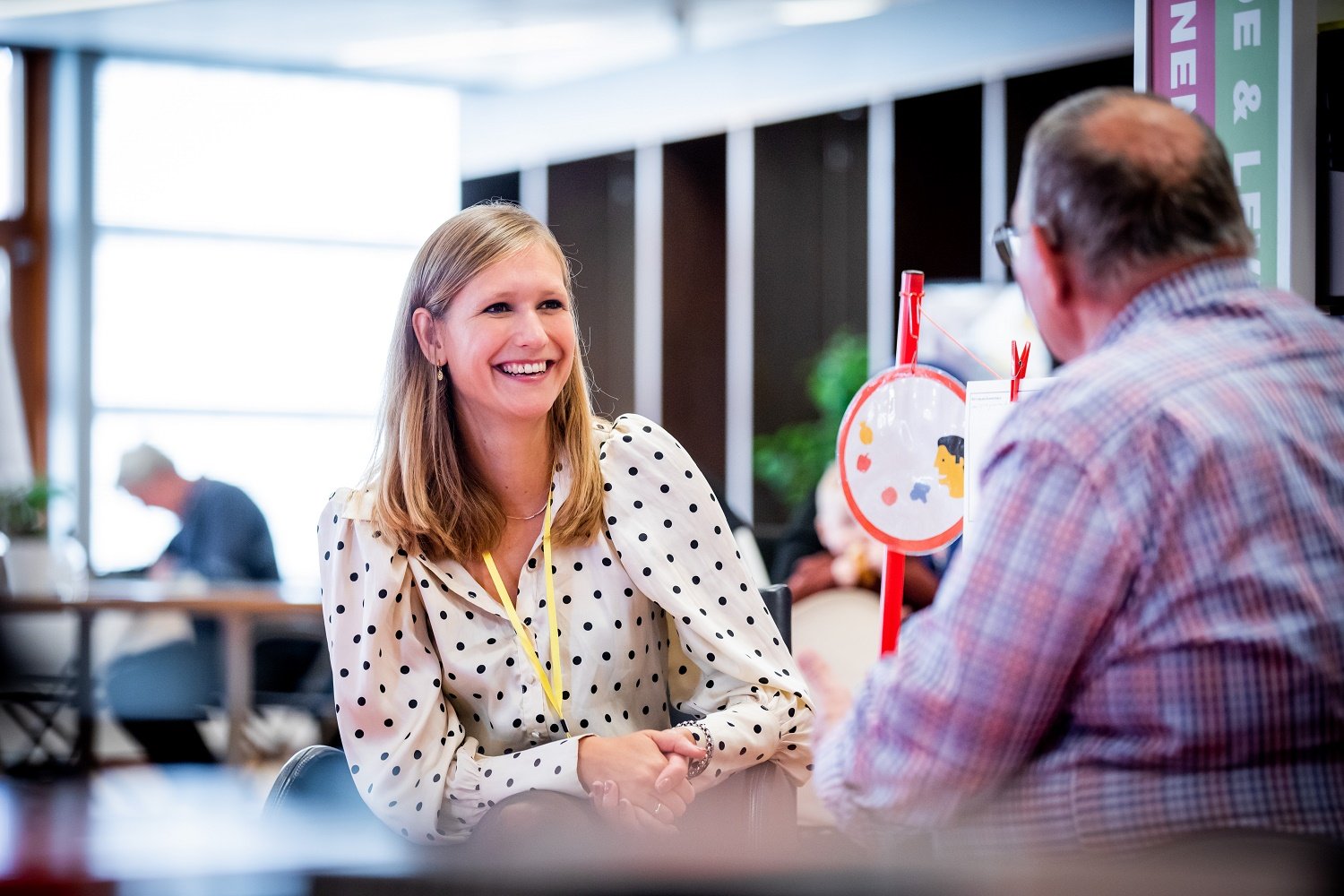A look at... A word about tomorrow
Scientific research starts with questions. With this in mind, in October 2021 the Centre for Science and Culture organised A word about tomorrow (Even over Morgen), a low-threshold programme in seven district libraries in Utrecht.
The programme involves dialogues on equal terms between visitors to the library and researchers of Utrecht University and University Medical Centre Utrecht. The researchers went looking for questions and insights that could lead to new research or trigger surprising developments in existing research. These questions stand a chance of getting onto the Utrecht Research Agenda, which will be drawn up in 2022.
For the Utrecht Research Agenda we wanted to have conversations with residents of Utrecht who are not normally in touch with science or within the orbit of Utrecht University. This was a challenge for us, so we partnered closely with Utrecht Library. Giving a programme maker of the library an active role in our project team allowed us to tap their knowledge and experience of a target group that we are not very familiar with. This led to A word about tomorrow, a fine programme in which we collected over 500 questions about what Utrecht residents find important for the future.
When Utrecht University approached Utrecht Library with the aim of having conversations with ‘the Utrecht citizen’, I had to chuckle about that term. All Utrecht residents are welcome in the library: to read, to learn, to get informed, but also just to seek shelter from the rain or to sit for a bit. And, during this project, also to have conversations with researchers! The project proved immensely educational for visitors, the university and the library alike. I’m glad we’re also working together to explore an expanded offer for Utrecht residents. All three parties have a lot more to learn. This was definitely a project with excellent cooperation!
What I remember most from participating in A word about tomorrow is how the sincere, interesting and original questions of residents from across Utrecht’s districts and of all ages get you to reflect on your own specialisation and research. Whether they concerned the COVID pandemic or (the lack of) freedom in other parts of the world, the questions always led to interesting conversations that now inform my work as a researcher. It showed me, moreover, that research done at Utrecht University really is relevant to people; it affects them and it matters.
I was studying in the library in Overvecht when someone from Utrecht University asked me if I wanted to have a dialogue with a researcher. I was a bit nervous at first, but Max [Vetzo, ed.] said: ‘You can tell and ask anything that’s important to you.’ I really appreciated him putting me at ease and listening so carefully. We talked at length about fear, and how it is that people can feel imprisoned while they’re free. Together we came up with a question for science: ‘How can we make people who seek refuge in the Netherlands feel at home?




